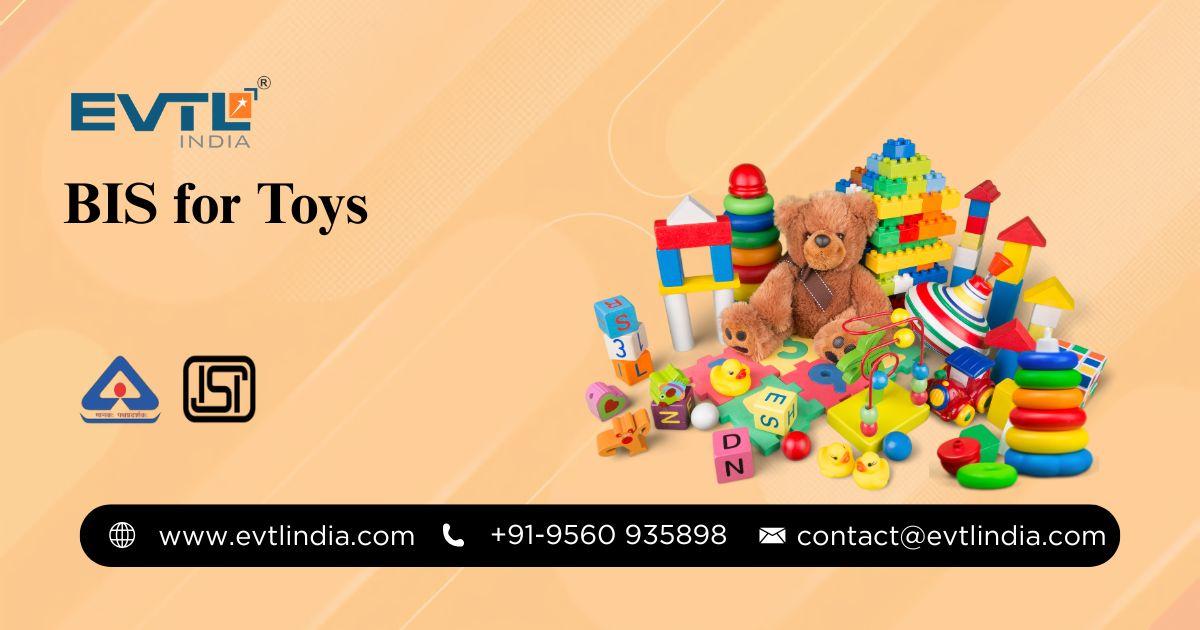The Unspoken Priority in the Toy Industry: Safety and Standards
In the colorful world of toys, behind every playful shape and cheerful jingle lies a silent promise—safety. For parents, manufacturers, and retailers alike, that assurance comes in the form of standardization, and in India, the gold standard is set by the Bureau of Indian Standards (BIS). Whether imported or domestically produced, every toy sold in India must adhere to specific safety norms. That’s where BIS certification for toys becomes not just a regulatory formality but a mark of credibility, trust, and responsibility.
Why Toy Certification Matters More Than Ever
With rising global awareness around child safety and increasing toy recalls due to hazardous materials or choking risks, governments worldwide are strengthening regulations. India is no exception. The Ministry of Commerce & Industry mandated BIS certification for all toys, making it illegal to sell non-certified toys in the Indian market.
This regulation is part of the government’s quality control drive under the Toys (Quality Control) Order. For manufacturers and importers, the implications are massive—non-compliance leads not just to product seizures but also to reputational damage and heavy penalties.
Understanding the BIS Standards for Toys
BIS classifies toys under two broad categories: electrical toys and non-electrical toys. Each type comes with its own set of Indian Standards derived from globally accepted safety norms. These include tests for:
-
Mechanical and physical properties
-
Flammability
-
Chemical composition (checking for toxic elements like lead, phthalates, etc.)
-
Electrical safety (for battery-operated toys)
The applicable Indian Standards are IS 9873 (Part 1, 2, 3, etc.) for various toy categories, and IS 15644 for electric toys. Without compliance to these, the toy cannot carry the ISI Mark for toys, and cannot be legally marketed.
ISI Certification for Toys: More Than Just a Label
The ISI certification for toys is the hallmark of quality and safety. For consumers, this mark simplifies trust. For businesses, it's the gateway to market access. The ISI Mark for toys is not granted arbitrarily. It is awarded only after thorough product testing in BIS-recognized labs and a successful factory audit.
Once a manufacturer receives the license, every toy unit must display the ISI Mark, along with a 7-digit CM/L (Certification Mark License) number. This allows traceability and accountability, further strengthening the certification’s value.
The BIS Certification Process for Toy Manufacturers
Securing BIS certification for toys involves a structured and rigorous process:
-
Application Submission: Includes detailed company documents, product specifications, and factory details.
-
Product Testing: Toys are submitted to a BIS-approved laboratory for evaluation against prescribed Indian Standards.
-
Factory Audit: BIS officers visit the manufacturing facility to verify quality control systems, production process, and compliance readiness.
-
Grant of License: If all conditions are met, BIS issues the license to use the ISI mark.
Foreign manufacturers need to apply under the Foreign Manufacturers Certification Scheme (FMCS), which includes similar steps, but with stricter scrutiny and periodic audits.
The Role of a BIS Consultant for Toys
For most businesses, especially startups or foreign manufacturers entering the Indian market, the BIS process can be overwhelming. Documentation errors, incomplete test reports, or factory audit failures can cause costly delays.
A BIS consultant for toys acts as a strategic partner in this journey. Their role includes:
-
Guiding through the proper classification of toys
-
Coordinating with BIS-recognized labs
-
Ensuring all technical documentation and test reports are error-free
-
Managing BIS application, follow-ups, and query resolution
-
Preparing for successful factory audits
With expert consultants, the risk of rejection drops significantly, and certification timelines can be optimized—getting your toys to the market faster and more confidently.
Common Challenges in BIS Compliance for Toys
Manufacturers often face hurdles during the BIS certification process. These include:
-
Incorrect categorization of products (mixing toy categories)
-
Use of substandard or unapproved materials
-
Delays in lab testing due to backlog or incorrect documentation
-
Lack of clarity on product standards and test requirements
-
Language and regulation barriers, especially for foreign manufacturers
Awareness and professional guidance go a long way in overcoming these issues and ensuring smooth, error-free certification.
Recent Trends and the Road Ahead
India’s toy market is undergoing a transformation. With the government’s push toward "Make in India" and growing awareness about product safety, compliance is no longer an option—it's a business essential.
The BIS has also digitized many parts of its certification process, including the Manakonline portal for application tracking and license renewal. Additionally, awareness drives and training for MSMEs are helping smaller toy manufacturers join the formal market.
Going forward, BIS may introduce stricter surveillance, batch testing, and QR-based traceability for ISI-marked toys, which will further reinforce the trust in certified products.
Conclusion
EVTL India is one of the leading BIS Consultant in India, helping manufacturers obtain their BIS licences hassle-free. Toys are not just products; they are learning tools, companions, and the foundation of childhood imagination. In this sensitive space, safety and trust cannot be compromised. The BIS for toys ensures that every toy reaching a child's hand is free from harm, compliant with national standards, and built for durability.
For manufacturers and importers, achieving BIS certification for toys is not just about meeting legal mandates—it’s about setting themselves apart in a crowded market with the ISI Mark for toys. Whether you’re launching a new toy line or expanding into India’s booming market, a qualified BIS consultant for toys can help you navigate this vital certification journey with ease and precision.



